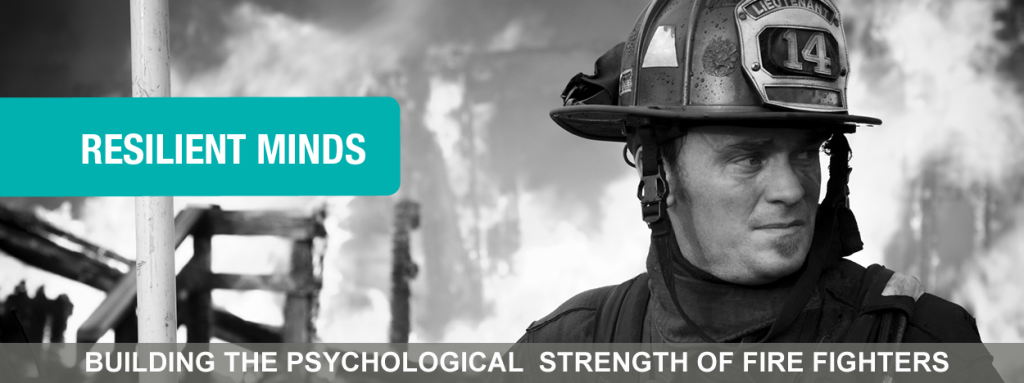Menu
Close
Resilient Minds®
Sep 8, 2022

The Resilient Minds® program engages and informs first responders in four crucial areas relevant to their work: trauma, psychological distress, trauma-informed responses and building resiliency.
Resilient Minds® uses the 4R Action Toolkit® to build skills needed to reduce personal risks related to psychological impacts, and assist colleagues, family, or members of the public who may be struggling with a mental health problem or be in a crisis.
Visit the Resilient Minds® National site at https://cmha.ca/resilient-minds.
Program Outline
Resilient Minds® is a 8-hour workshop, however, each learning module can be delivered in 2 hours. A brief description and learning objectives for each of the four modules are outlined below.
Learning Module One
Psychological Trauma – Awareness and Understanding
Fire staff will learn the definition of resilience, stress and trauma, the various responses a healthy human may experience after a stressful or traumatic event, followed by assessment and intervention practices to mitigate the negative impacts of trauma, psychological distress, and disorder.
Objectives
- Define resilience and stress
- Build an understanding of psychological trauma and the impacts on personnel
- Learn to recognize the signs and symptoms of stress and trauma
- Encourage early response to psychological trauma
- Promote recovery after trauma
Learning Module Two
Psychological Trauma – Potential Risks and Strategies
Psychological trauma is explored further – through the application of the 4R Action Toolkit®, fire staff will learn the importance of early recognition and early intervention to prevent a moderate to severe mental health problem from developing.
Objectives
- Provide an overview of assessment and intervention: The 4R Action Toolkit®
- Develop communication skills
- Explore treatment options
- Discuss and review crisis intervention
- Identify how to support peers and promote recovery
Learning Module Three
Responding with Respect – Psychological Distress & Disorder
Fire staff will develop a basic understanding of psychological health and psychological disorders and the definition and importance of a trauma-informed response. They will learn to apply the 4R Action Toolkit® to effectively communicate and appropriately respond to a citizen, colleague, family member experiencing a mental health problem/crisis.
Objectives
- Recognize the usefulness and key components of trauma-informed responding
- Increase understanding and recognize signs of psychological distress & disorder
- Develop effective communication skills to respond and support individuals
- Discuss appropriate and safe responses to challenging situations
- Gain an understanding of resources
Learning Module Four
Managing Workplace Stress and Building Resiliency
Fire staff will explore the risk factors and impact of workplace/life stress and will learn to strengthen their resiliency by building valuable and helpful coping strategies.
Objectives
- Recognize negative impacts of work-life stress
- Identify components of burnout, compassion fatigue and vicarious trauma
- Develop action toolkits to limit work-stress
- Build resilience and strengthen psychological health
The two delivery options are;
- Train-the-trainer private delivery
- Resilient Minds® Workshop
Click here for The Resilient Minds Impact Story.
Please contact us for more information.
Email: courses.vf@cmha.bc.ca
Phone: 778-986-2524
CLICK HERE FOR INSTRUCTOR HUB
Resilient Minds®-Building the Psychological Strength of Volunteer Firefighters proudly supported in B.C. by